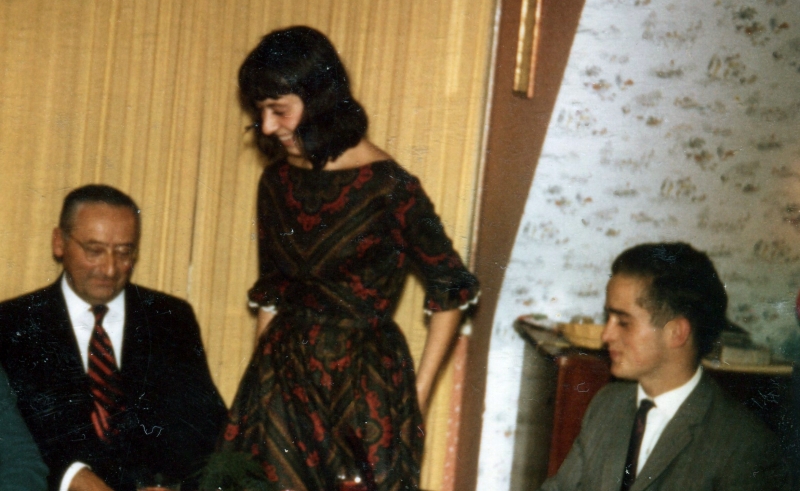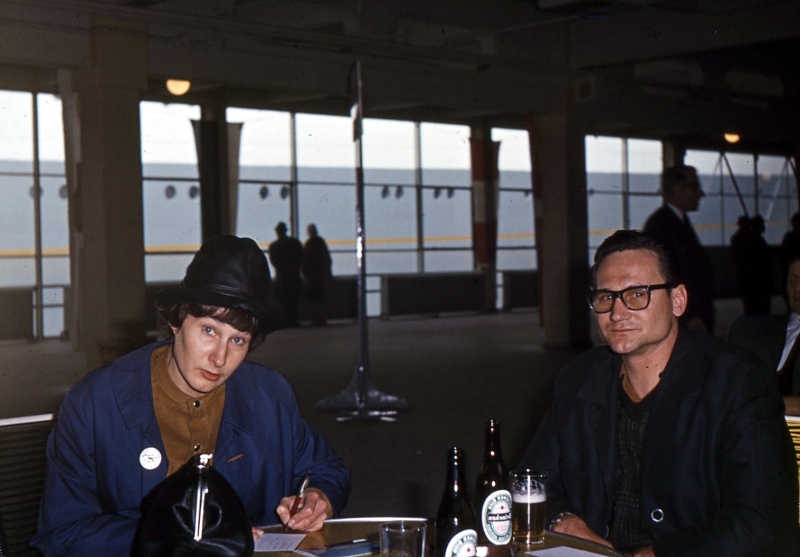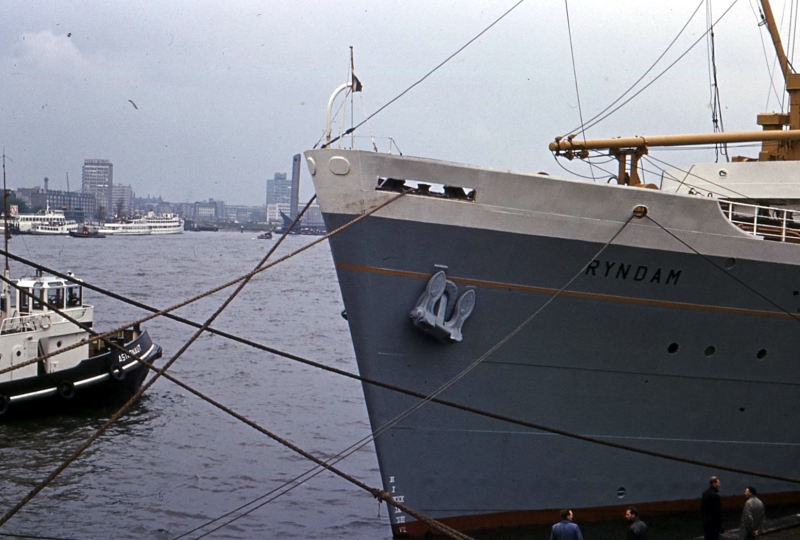Farewell to Germany

Papa Panknin with Daughter Biene and Son Walter 1965
Career planning for his daughter was on Papa Panknin’s mind, when he asked Biene to have a serious talk with him. He was not fond of seeing her becoming a teacher. He felt that it would be too stressful for her. Sitting endless hours in lecture rooms, bending over and studying textbooks would lead to even getting more stressed out, when after her university training Biene would enter again the educational treadmill. In his opinion the best thing for her to do would be to get a job and earn money as quickly as possible. Being a little tightfisted and in control of the family purse strings, he may also have been thinking of the expenses, which a prolonged period of university training for his daughter would incur. In contrast to North American practice German law required that parents were at least in part financially responsible for their children’s post-secondary education. In addition, there was probably on his mind his son Walter, Biene’s twin brother, who was embarking on a six-year program at the Institute of Engineering at the University of Hanover. Biene, with her eyes firmly set on getting married, agreed to a compromise that her father had proposed. She would start immediately her teacher’s training at the university of Wuppertal, but at the same time apply at the German airline Lufthansa to enter a training program to become a stewardess at the age of twenty-one. In my eyes this was a good plan. I really wanted her to become a teacher. So I took comfort in the fact that thousands of young girls were dreaming about becoming a stewardess and only a few had their applications accepted every year. Therefore, I had no difficulty of sending my wholehearted approval and let Biene romanticize about working for Lufthansa and flying to Calgary, where she could visit me on her stopover flights to Western Canada.

Adolf and Eka in the Waiting Room at the Rotterdam Terminal Station
At last, the day arrived when Adolf, Eka and I were on our way to Rotterdam, where we would board the passenger ship Ryndam that was to carry us to Canada. Mother woke us at 3 a.m. to make sure we would have ample time to enjoy a solid breakfast before we parted. One hour later we sat at the breakfast table. Aunt Mieze read from her devotional booklet and included us in her morning prayers, with which she had been greeting the day for as long as I can remember. The outside world was still shrouded in darkness, which put us all into a somber mood. The thought that we would not be seeing Mother and all the other dear relatives for a very long time was weighing heavily on our mind. Later on, we were occupied loading Jürgen’s car with our possessions, five suitcases, my tape recorder, guitar and a gigantic duffel bag with personal belongings too valuable to be trusted to the wooden crates. The heavy work made us forget a little the pain of leaving home. We even managed to put on a cheerful face, when we said our good-byes adding comforting words like ‘We’ll meet again in beautiful Canada!’

The Ryndam that brought us to Canada – Anchored at Rotterdam Harbour
The Trans European Express train (TEE) was racing at an incredible speed towards the Dutch border stopping only at major urban centres. At Wesel, my previous hometown, which had grown into a city of almost 50,000, the train did not stop either. Shortly after noon we arrived in Rotterdam, where a taxi took us to the harbour, which was and still is one of the biggest and busiest ports in the world. There our ship was waiting for her passengers to come on board. In the harbour inn Adolf and I sat and drank beer, while Eka had a coffee to perk up with after such a long train ride. We were quite annoyed at the delay of our departure caused by the much larger sister vessel of the Holland-America line bound for New York, which happened to leave port on the same day. Finally we were allowed to embark. Before heading out into the Atlantic Ocean, the Ryndam, for the next ten days our home, hotel, restaurant, and entertainment centre, had to make two ports of call, Le Havre and Southampton. From England I mailed Biene my first letter written at sea.